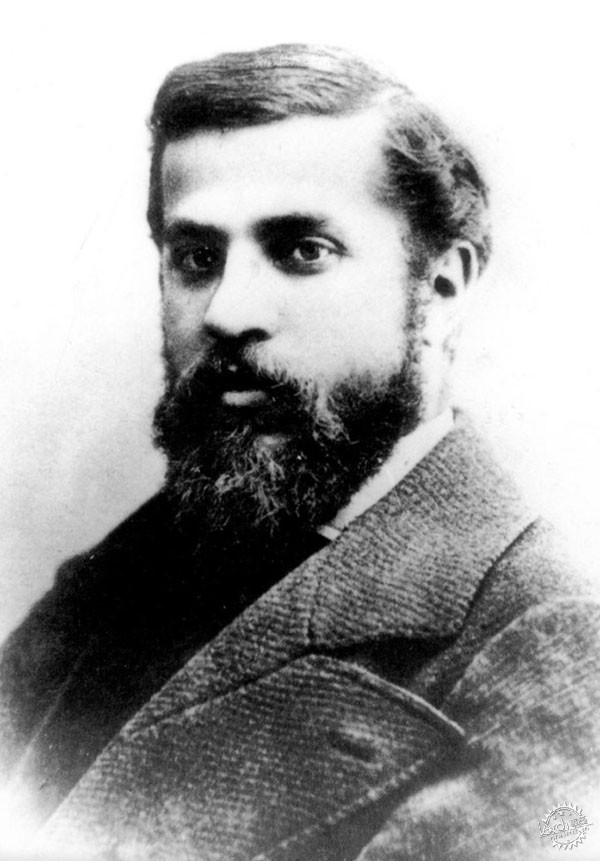
Spotlight: Antoni Gaudí
由专筑网周韦博,韩平编译
当加泰罗尼亚建筑师安东尼奥•高迪(1852.06.25-1926.06.10)从巴萨罗纳建筑学院毕业时,学校的导师Elies Rogent曾宣称:“先生们,我们现在要么成为一个天才,要么就是一个疯子”。一个世纪以后,高迪的作品依旧映衬着这句话:即使他已经被公认为天才建筑师,他的作品鼓舞人心同时又奇形怪状,在建筑历史中独树一帜,但却从未被模仿和广泛应用,只有那些从事完成他最著名的建筑(圣家族教堂)的人还在做他风格的建筑。
When Catalan architect Antoni Gaudí (25 June 1852 – 10 June 1926) graduated from theBarcelona Architecture School in 1878, the director of the school Elies Rogent reportedly declared: "Gentlemen, we are here today either in the presence of a genius or a madman!" [1] Well over a century later, this tension is still evident in Gaudí's work; though he is widely regarded as a genius architect, his distinctive style stands as a singularity in architectural history - simultaneously awe-inspiring and bizarre, never fitting into any stylistic movement, and never adapted or emulated, except by those still working to complete his magnum opus, Barcelona's famous Sagrada Família.
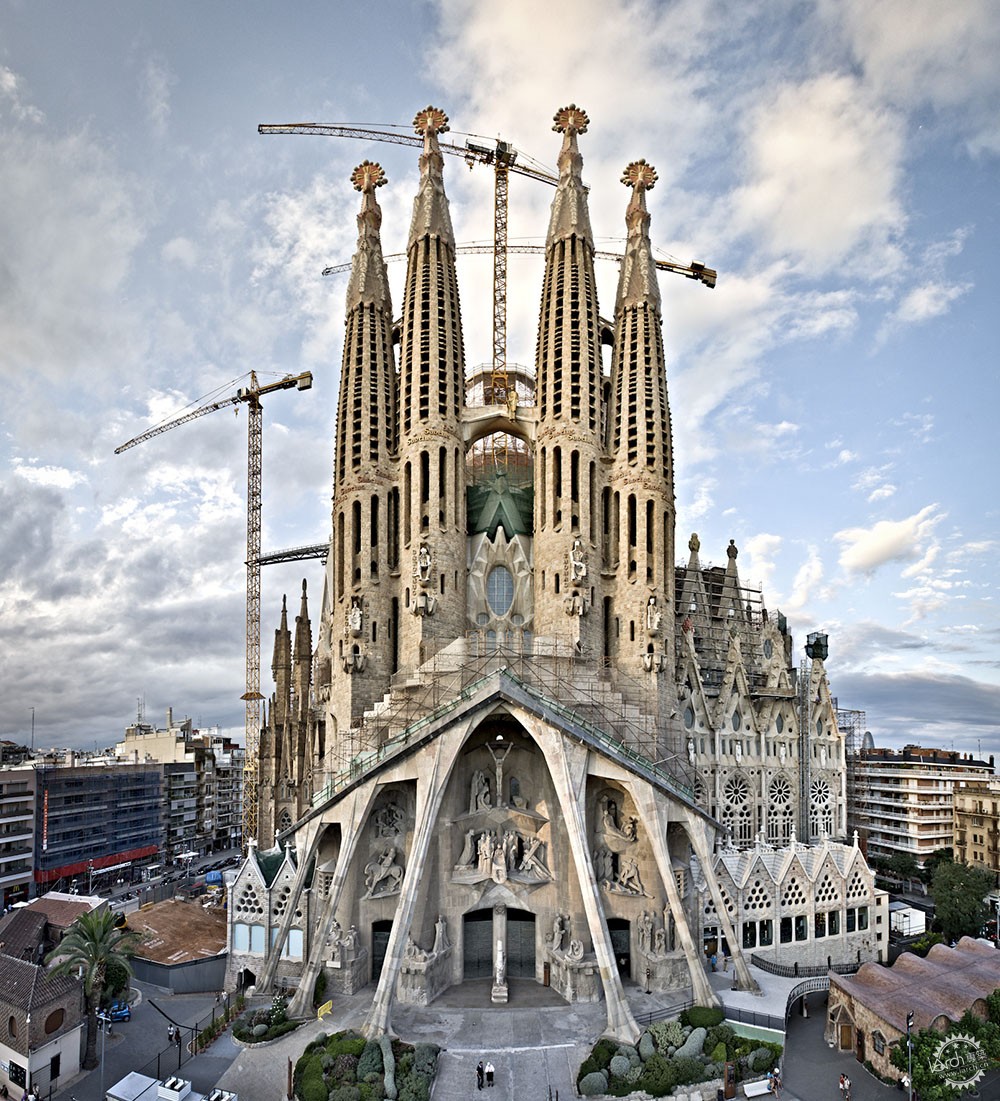
La Sagrada Familia's passion facade. 圣家族大教堂受难门Image © Expiatory Temple of the Sagrada Família
出生于加泰罗尼亚的乡村(具体是Riudoms还是Reus难以考证),高迪从小就对自然产生兴趣。在1875到1878年间,高迪参与军队服役,但由于易病的体质(困扰他一生),他得以有大量的时间在Llotja学校和巴萨罗纳高等建筑学院学习。
Born in the Catalan village of either Riudoms or Reus (the records conflict), from a young age Gaudí was fascinated by nature. Between 1875 and 1878, Gaudí was conscripted for compulsory military service, but due to ill health - which he struggled with all his life - he was able to spend much of his time studying at the Llotja School and the Barcelona Higher School of Architecture.
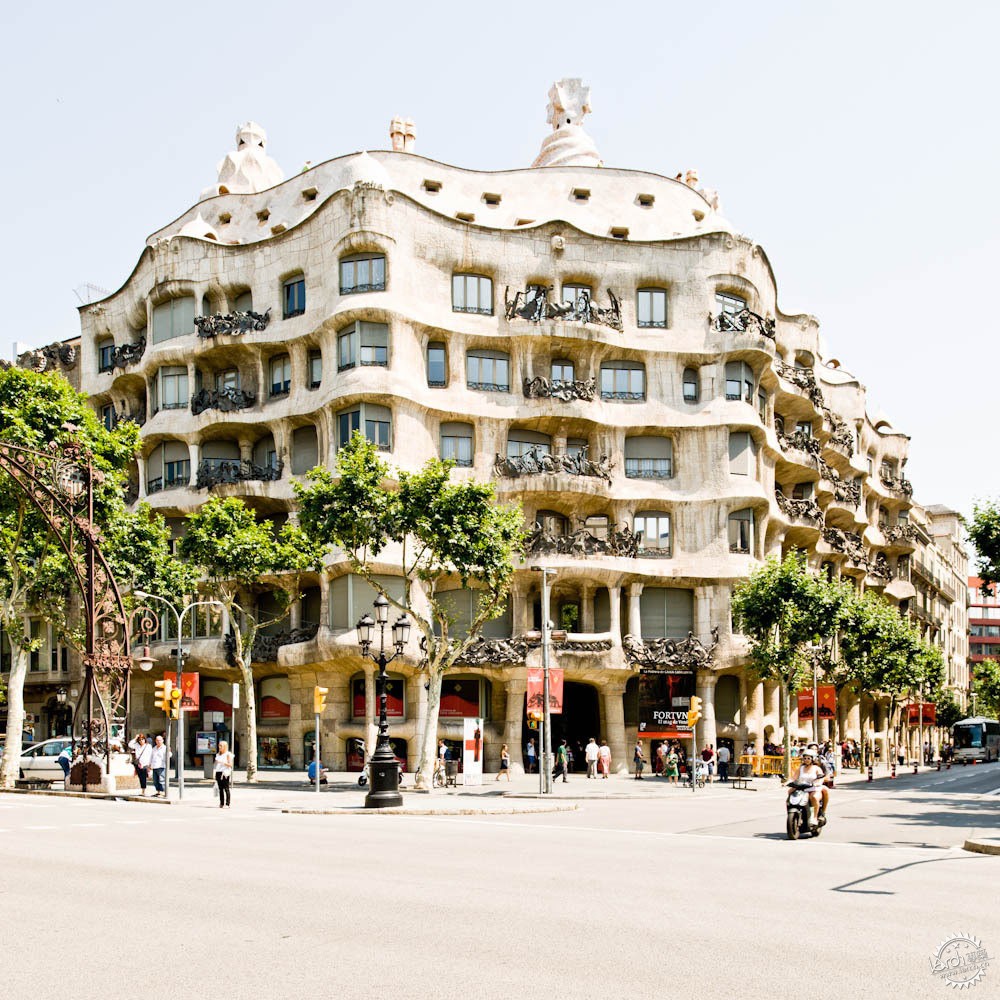
Casa Milà. 米拉公寓 Image © Samuel Ludwig
高迪创造性的风格受到多方面的影响,但可以肯定的是,他得益于19世纪末的建筑思潮,当时古典的建筑体系已经开始动摇。正因如此,高迪可以接触东方的建筑风格,并从中获取灵感,同时他也深受当时哥特复兴建筑的影响,尤其是法国建筑师Viollet-le-Duc。但是,他认为哥特建筑并不完美,于是他开始将自然中的多样主题融入设计。
Guadí's fantastical style was informed by a number of influences, and was very much a result of the context of late 19th century architecture, when the requirement to follow strict historical styles was beginning to fall out of favor. As such, Gaudí was able to take inspiration from Oriental styles, and was heavily influenced by the Revival Gothic architecture of the time, most notably encapsulated in the work of French architectViollet-le-Duc. However, he believed that Gothic architecture was "imperfect," and began to infuse his work with a variety of motifs drawn from nature.
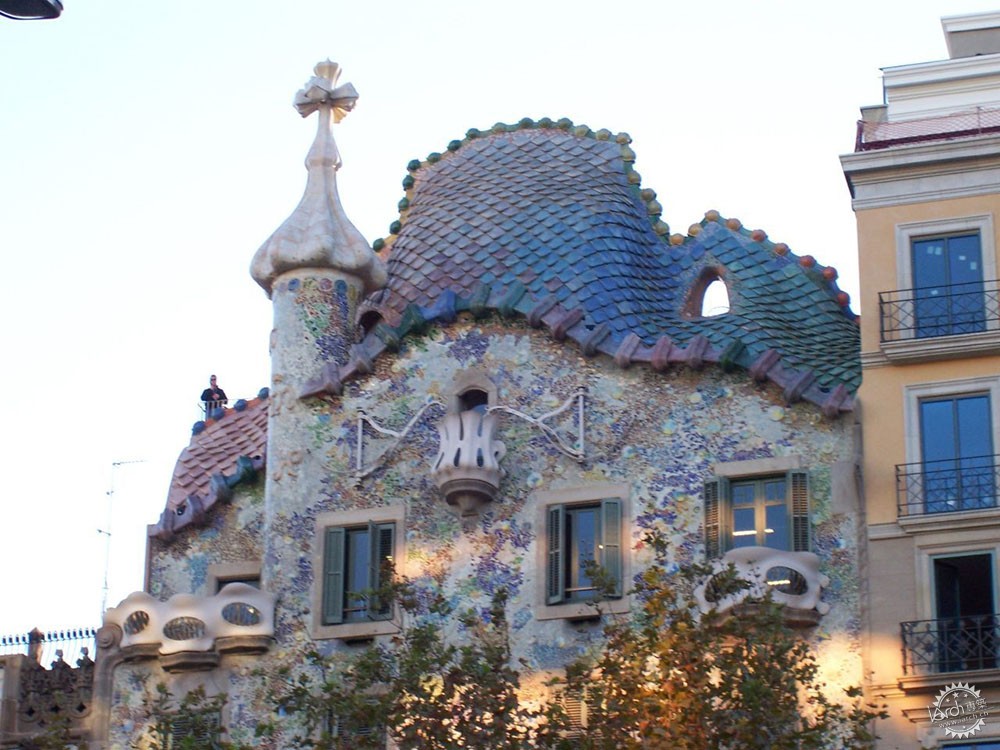
Casa Batlló. 巴特罗公寓 Image © Flickr user srboisvert licensed under CC BY 2.0
然而,高迪不光致力于丰富的建筑装饰的设计,他同样关注和理解建筑结构。因为早年的几何学教育,高迪同样在工程方面造诣很深,他的作品中常常出现悬链线、双曲抛物面、双曲面和螺旋面,这些形状的使用能使奇异的造型有效的建造,但更重要的是还能保持建筑的活力和有机性。
However, as much as his works of architectural decoration are striking, Gaudí is equally notable for his advanced understanding of structures. Having studied geometry in his youth, Gaudí followed advances in engineering and his work regularly features catenary curves, hyperbolic paraboloids, hyperboloids and helicoids, shapes which he used to create efficient (but more importantly dynamic and organic) structures.
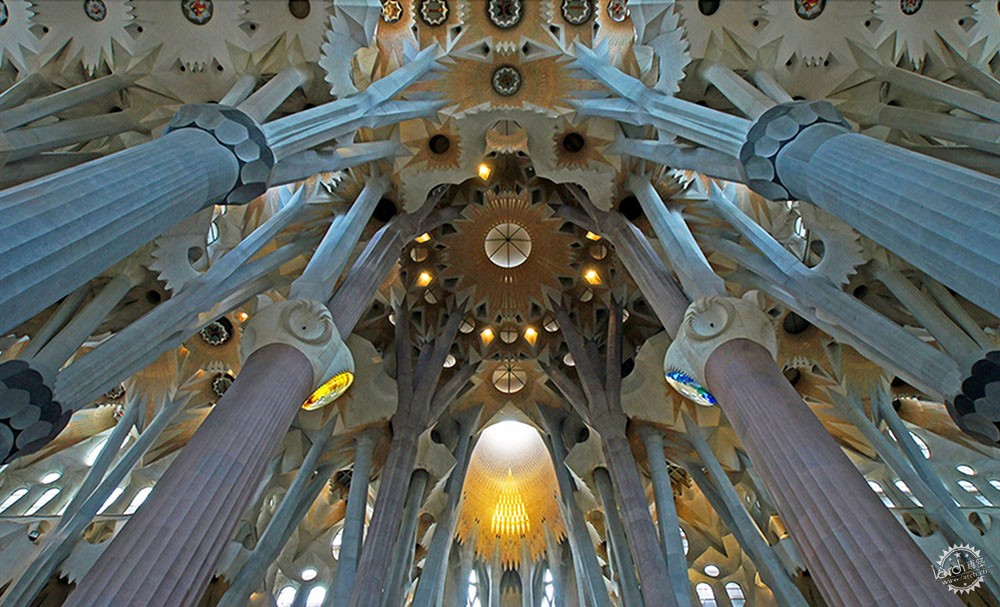
La Sagrada Familia interior. 圣家族教堂室内 Image © Renate Dodell
因为作品“文森之家”,高迪成名非常早,而且在1883年,年仅31岁的高迪被任命为圣家族教堂的设计师。在之后的三个世纪中,高迪的作品成为了巴萨罗纳的标志,那些耳熟能详的作品像桂尔公园、桂尔教堂、米拉公寓等,彻底改变了这座城市的面貌。
Gaudí gained recognition very early in his career with designs such as the Casa Vicens, and in 1883, aged just 31, he was appointed to the Sagrada Família project. Over the following three decades, the work of Gaudí became almost synonymous with Barcelona, as he changed the face of the city and its surrounding regions with projects such as the Parc Güell, Colònia Güell and Casa Milà.
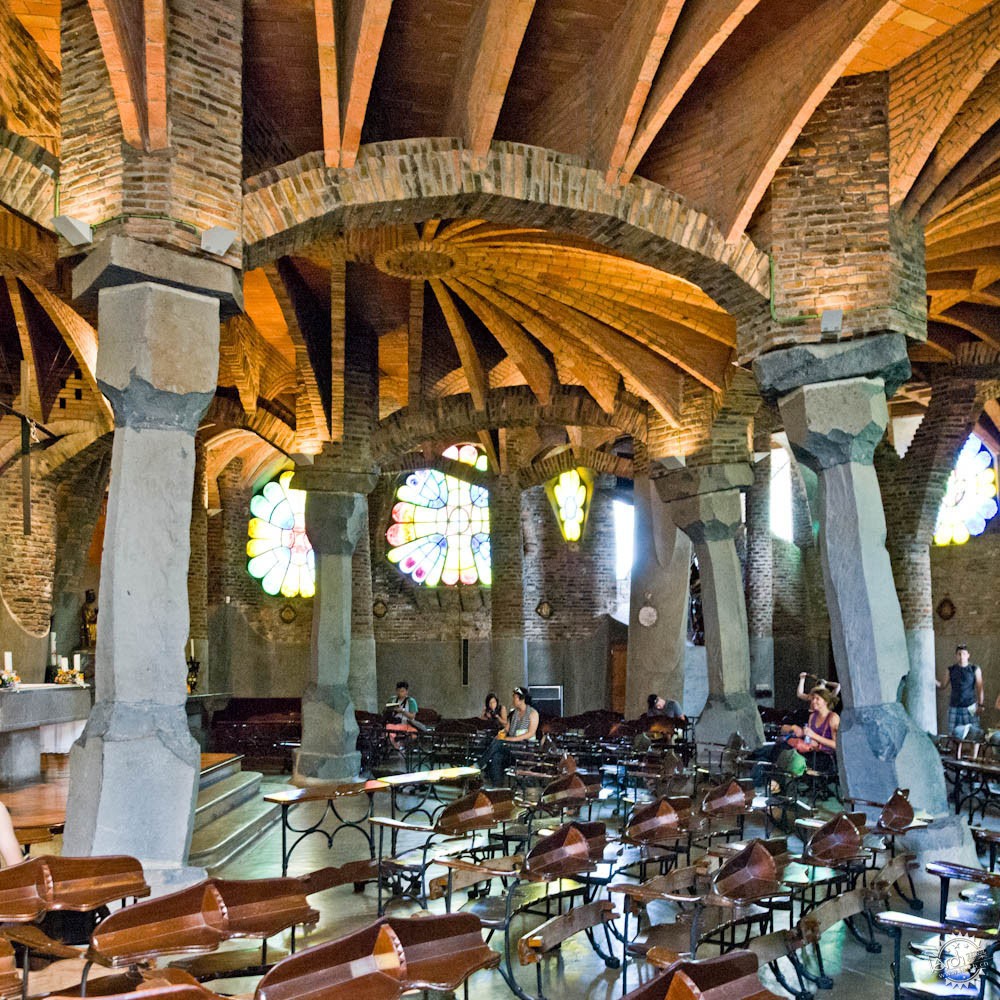
Colònia Güell. Image © Samuel Ludwig
然而,在1915年高迪停止接受任何其他项目,转而专心设计圣家族大教堂。之后的11年间,他一直为这个建筑操劳,知道他1926年死于一场车祸。
However, in 1915 Gaudí ceased all other projects in order to focus exclusively on the Sagrada Família. He worked on the building for the next 11 years, until he was hit by a tram and died in 1926.
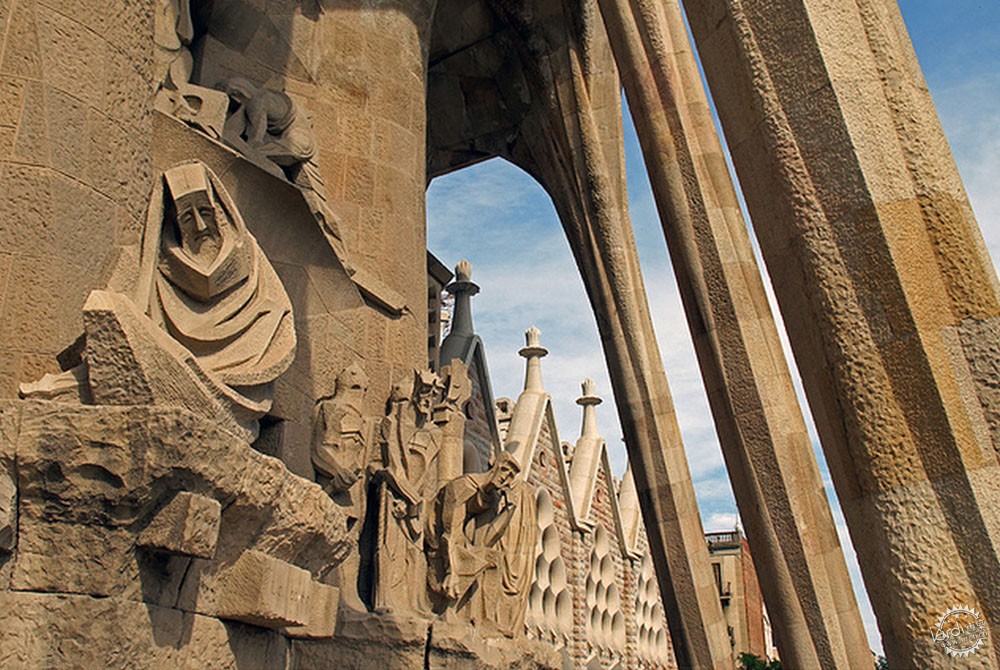
© Samuel Ludwig
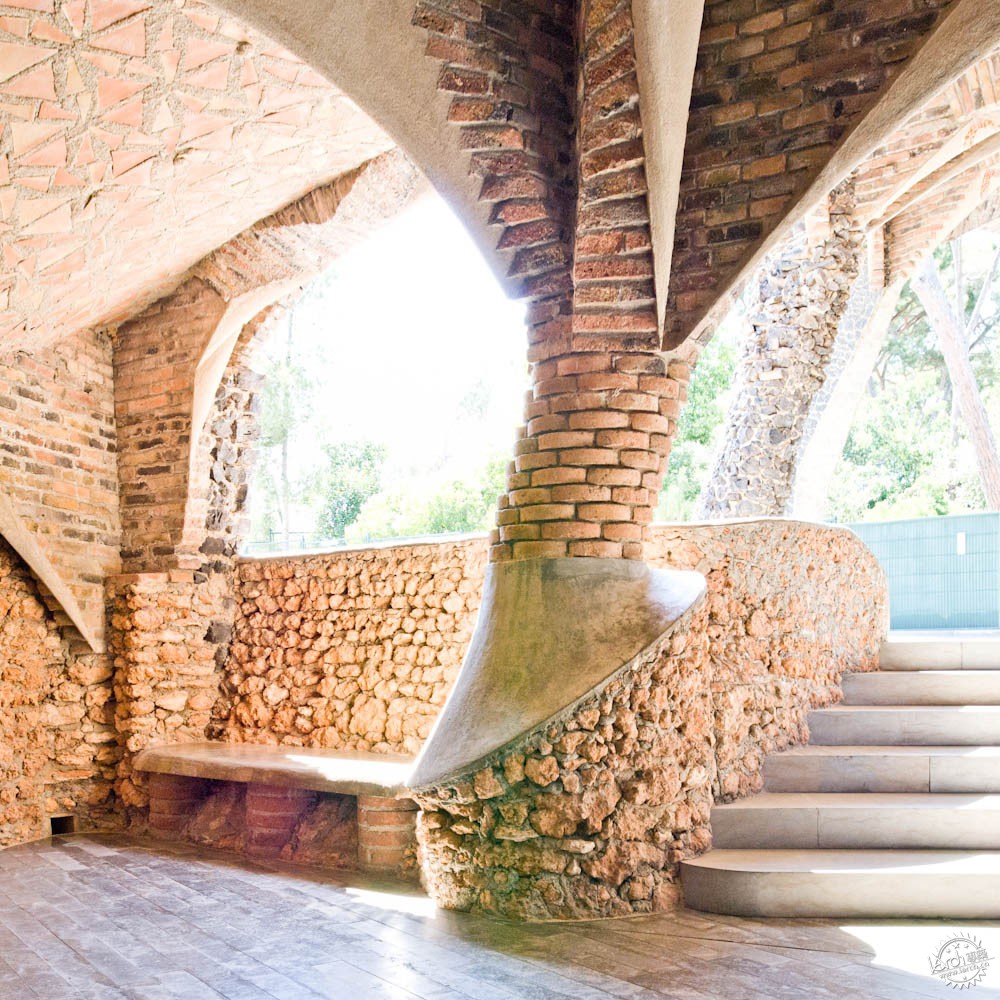
© Samuel Ludwig
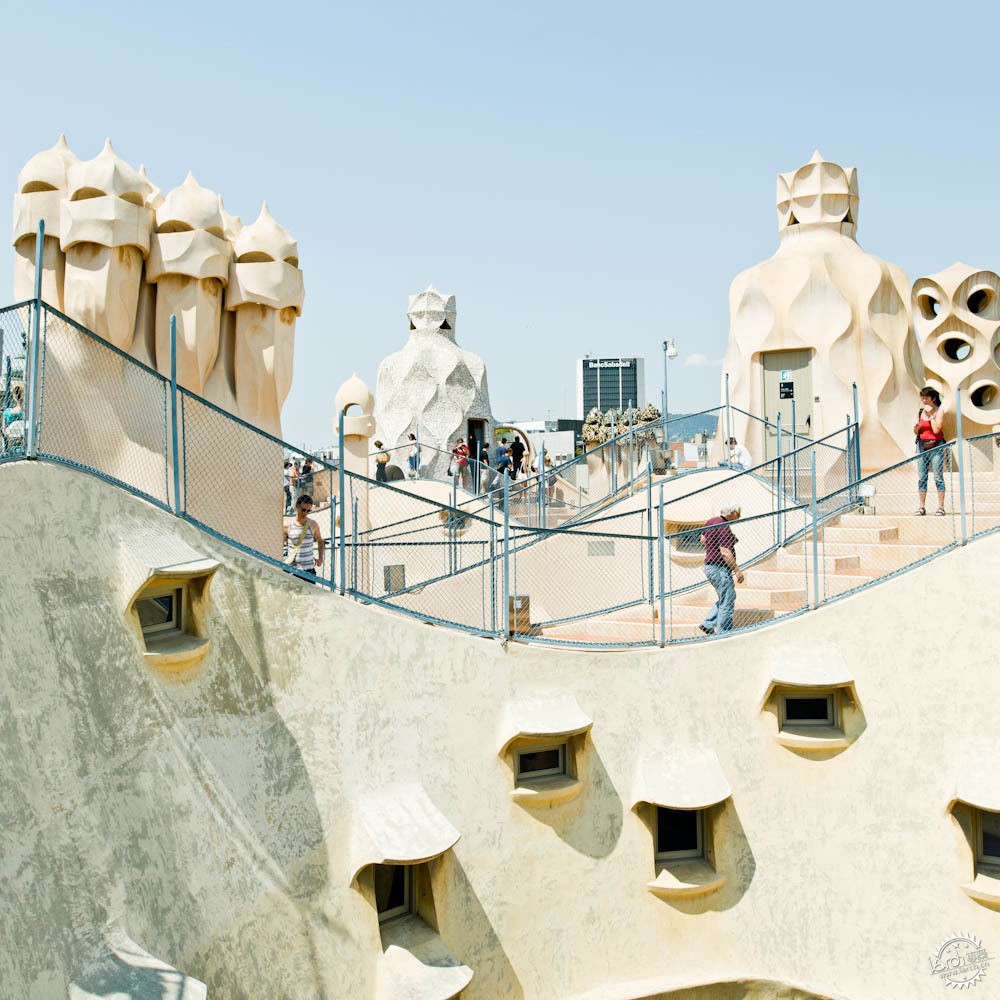
© Samuel Ludwig
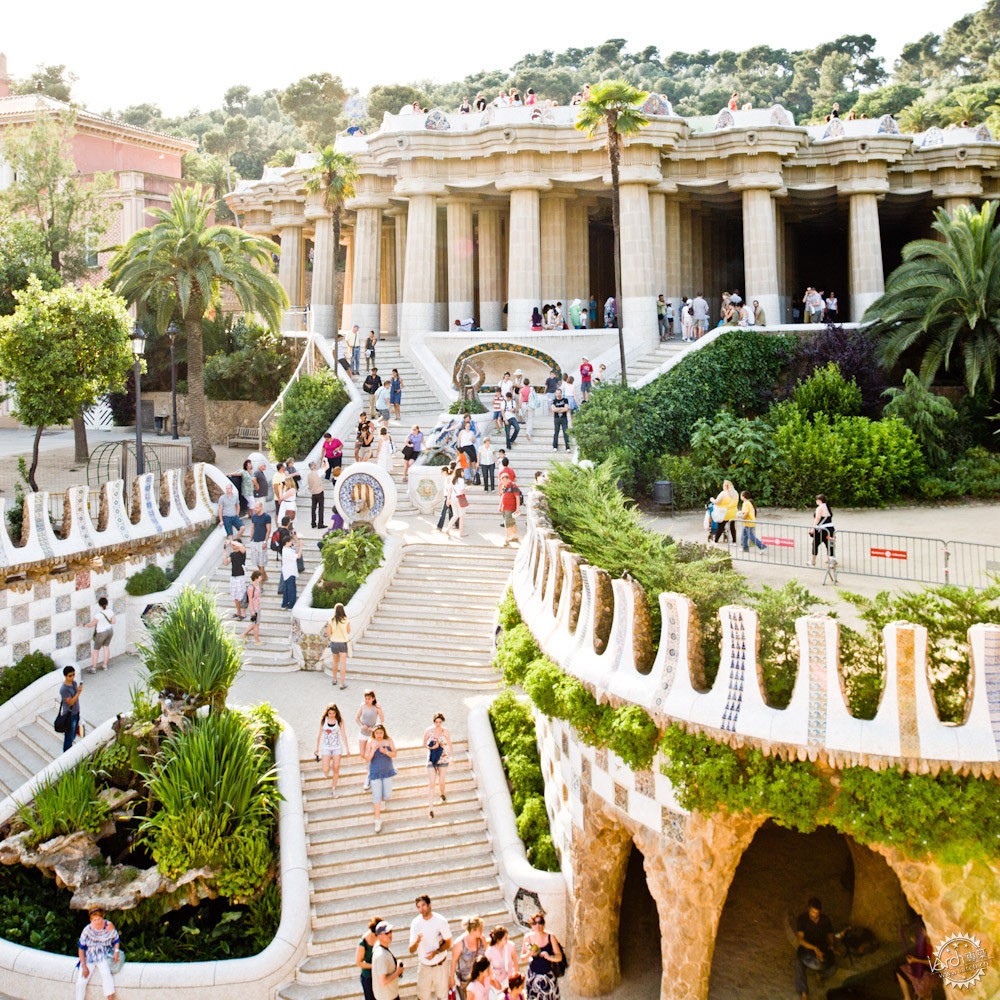
© Samuel Ludwig
出处:本文译自www.archdaily.com/,转载请注明出处。
|
|
